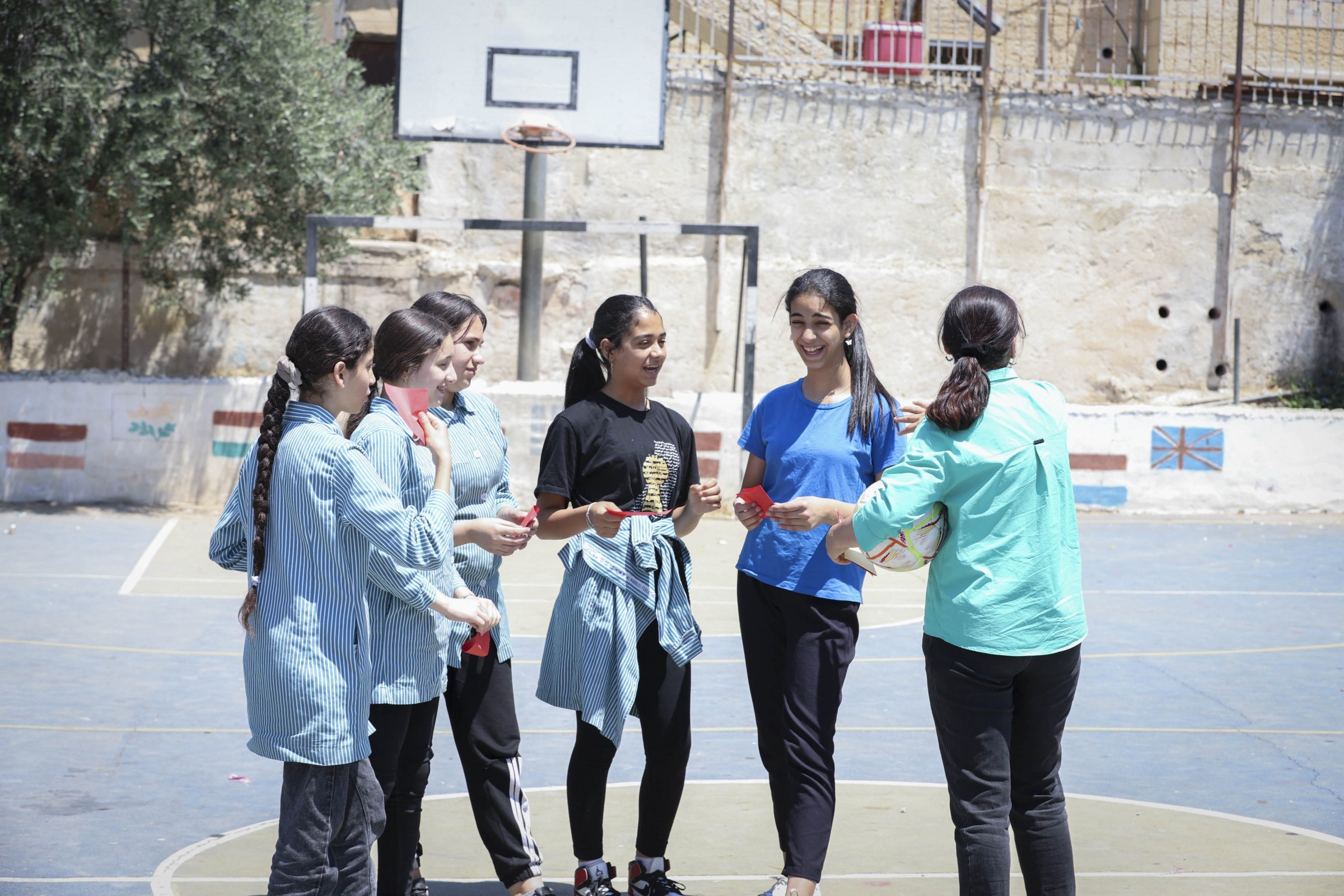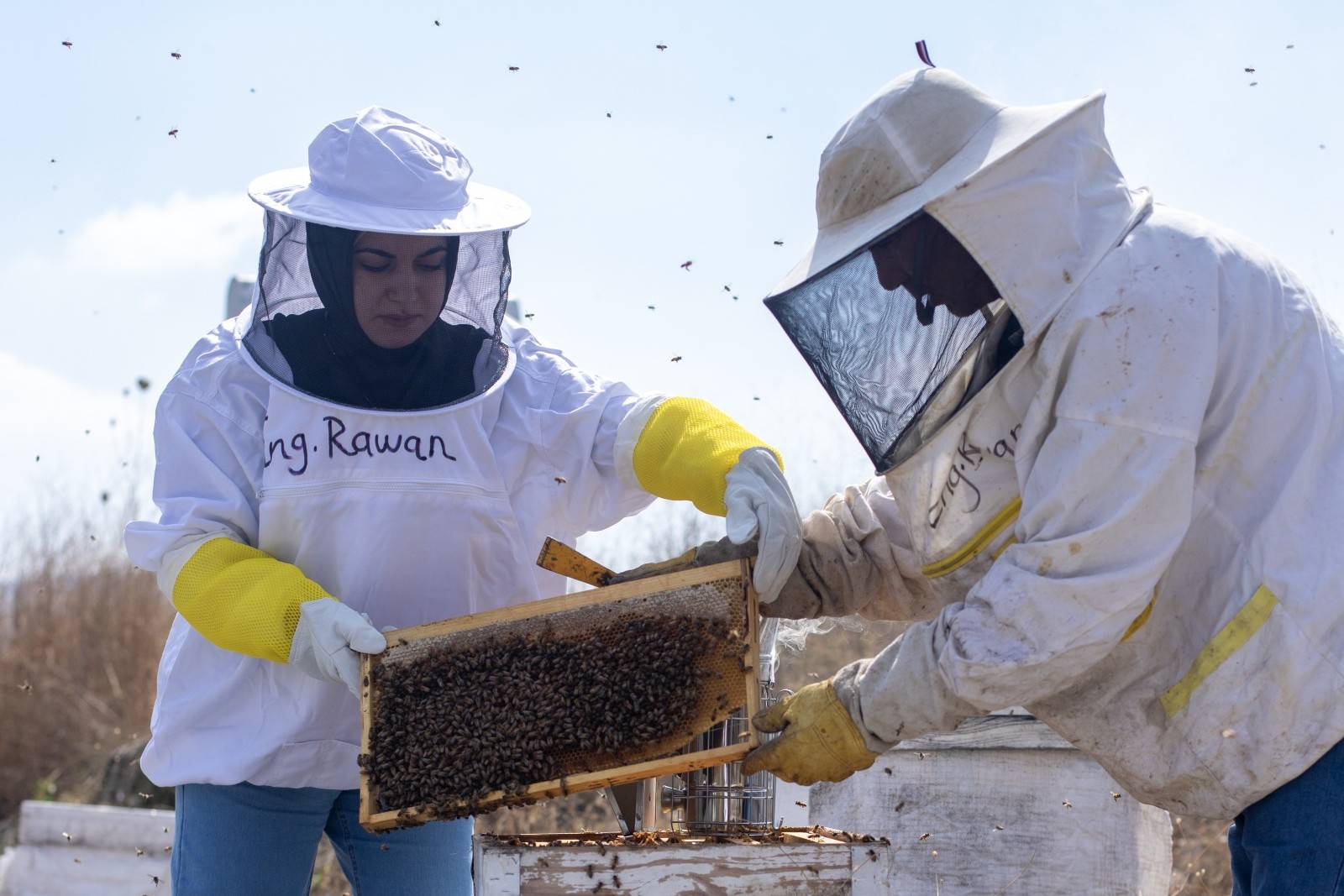Palestine
Frieda collaborates with local partner organisations in Palestine to support survivors of sexualized and gender-based violence, as well as to promote the economic, political, and social participation of women and young people.
Various cultures and religions have developed on the territory of present-day Palestine. This rich historical-religious heritage, among other factors, leads to tensions. Contrary to international law, Israel has occupied Palestinian territory since 1948. The occupation regime and numerous armed conflicts repeatedly shatter the prospects of the Palestinian population. The State of Palestine is still not recognised by many other states. Political, social, and economic participation is often hindered by both the occupation policy and internal Palestinian tensions, and human rights are curtailed.
The consequences of the current war between Hamas and Israel are dramatic. The humanitarian situation in the Gaza Strip is catastrophic. In the West Bank and East Jerusalem, fear and insecurity, but also the propensity for violence, are increasing.
Frieda has been supporting local partner organisations in Palestine for over 60 years, both in regular projects and in humanitarian aid.

Situation of Project Participants
Palestinian women often have to fight against discrimination in many areas of their lives. Restrictions due to the Israeli occupation are often accompanied by gender-specific dangers such as harassment at checkpoints. Patriarchal role models and norms in Palestinian society further restrict women's scope for action. Although well-educated, women often cannot find paid employment. They are also not equal to men under the law. More than half of Palestinian women experience gender-based and sexual violence. Militarised contexts reinforce unequal power relations and harden patriarchal role models.
Palestinian women are rarely recognised as experts in conflict, security, and peace issues. As a result, gender-specific (security) needs often go unheard. Children and young people also live under extremely difficult conditions, especially in the many refugee camps. Violence and precarity are part of their daily lives, with few spaces for their own ideas and prospects.

Frieda Programme
In order to support women and young people in Palestine, our partner organisations work in the areas of emergency aid, income promotion and vocational training, protection against gender-based and sexualized violence, and promotion of non-violent communities. They work with human rights-based, gender-transformative, systemic, and conflict-sensitive approaches.
In the projects, women, children, and young people increase their social skills and acquire knowledge about human rights and women's rights and how to claim them. Survivors of violence receive psychosocial and legal support. Frieda's partner organisations also offer vocational training and provide psychosocial and financial emergency aid in the Gaza Strip.
At the community level, the partner organisations, together with project participants, raise awareness about equality in their social environment, for example through campaigns against gender-based violence. In safe spaces, participants can exchange experiences and reinforce networks and communities. At the structural level, partner organisations argue the case for legal reforms. They raise awareness among authorities and the public and argue the case for comprehensive peace.






